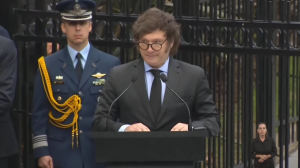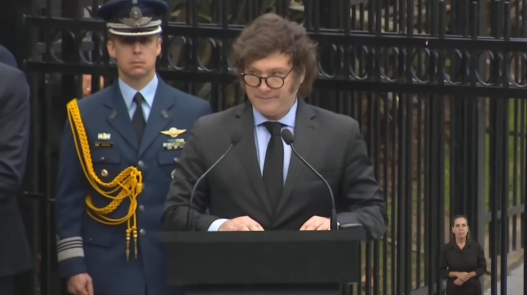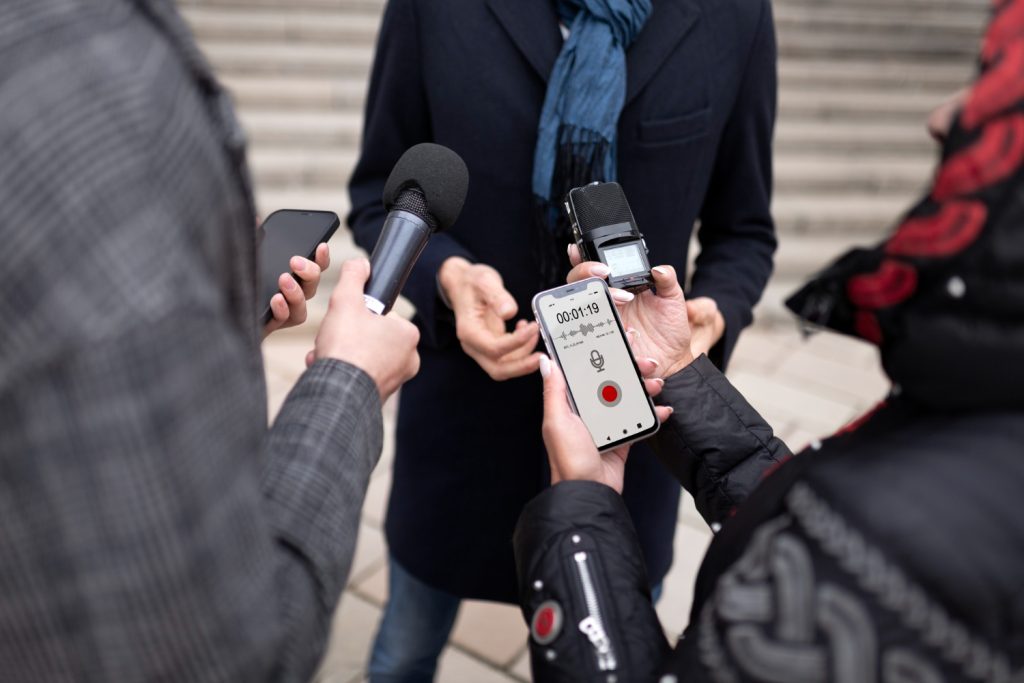
SPANISH MINISTER'S WORDS ON MILEI PROVOKE DIPLOMATIC CONFLICT WITH ARGENTINA
By Luis Ayllón / Director of The Diplomat in Spain
The words of the Minister of Transport, Óscar Puente, in which he accused the Argentine President, Javier Milei of “ingesting substances”, have provoked a diplomatic conflict between Spain and Argentina, with an exchange of communiqués in the last few hours.
After Puente’s accusations, alluding that Milei appeared on a television program “I do not know in what state and prior to the ingestion or after the ingestion of what substances”, the Argentine president published in his account of the social network X a statement from his Office, in which he “repudiates” those words, which he qualifies as “slander and insults”.
Afterwards, the Argentine President’s Office points out that “the Government of Pedro Sánchez has more important problems to deal with, such as the accusations of corruption that fall on his wife, a matter that even led him to evaluate his resignation”.
The communiqué adds that it hopes that Justice will act “swiftly in the face of such a corruption case”, which it considers affects the stability of Spain and the relations with Argentina.
In addition, it assures that Pedro Sánchez has endangered the unity of Spain, “making pacts with separatists and leading to the dissolution” of the country, and also Spanish women “allowing – it says – the illegal immigration of those who threaten their physical integrity”; and the middle class, due to the “socialist policies that only bring poverty and death”.
Finally, he states: “Argentines chose to change the model that brought us misery and decadence. The same model applied by the PSOE in your country”.
The Argentine communiqué was answered yesterday by the Spanish Government, through a note issued by the Ministry of Foreign Affairs, which states that it “categorically rejects the unfounded terms of that communiqué, and adds that ‘they do not correspond to the relations of two brotherly countries and peoples’.
“The Government and the Spanish people will continue to maintain and strengthen their fraternal ties and their relations of friendship and collaboration with the Argentine people, a will shared by the entire Spanish society”, states the Foreign Affairs note.
CALLS FOR HIS RESIGNATION
The Argentine Minister of the Interior, Guillermo Francos, called for Puente’s dismissal. “I don’t want to get inside the Spanish government but if I were the president, I would ask for his resignation”, he said in an interview with the Argentine radio station Radio Mitre, in which he also spoke of the possibility of presenting a formal diplomatic protest, stating: “I believe that a protest is the least that can be done against that subject”.
Francos described Puente as “irresponsible”, and added: “He cannot expose the government of a country which is important for Argentina because of its traditions, its descendants, because of the help given by Argentina; a lack of respect of such magnitude from a member of President Sanchez’s cabinet seems to me really unusual”.
The Minister of the Interior insisted: “Milei is the democratic president of Argentina, a country of immigrants from Spain, which gave shelter to Spaniards and gave shelter to Spain when it was bad. There are lots of Spanish companies that have invested here, how can it be that a character of this quality is part of a cabinet, makes such a statement and nothing happens?
In Spain, the leader of the PP, Alberto Núñez Feijóo also called for the resignation or dismissal of Óscar Puente, stating: “Today Mr. Puente should resign or be dismissed, but he will neither resign nor be dismissed, because Puente and Sánchez enjoy the quagmire in which they are trying to get Spain”. During a rally in Badalona, he said: “They have just created a political crisis with a brother country such as the Republic of Argentina”.
Puente, for his part, on the social network X reproached Feijóo for supporting Milei before the Government of Spain. “That between supporting his Government or Milei he was going to choose Milei was not quoted. He is already asking for a place in the rally with Abascal on May 18. It is impossible to distinguish him from the extreme right”, he wrote.
VISIT TO SPAIN
The diplomatic conflict opened between Madrid and Buenos Aires due to Puente’s words takes place fifteen days before Milei makes his first visit to Spain as Argentine President. Specifically, on the 18th and 19th of this month he is scheduled to participate in the EuropaVIVA24 Festival, organized by the leader of Vox, Santiago Abascal at the Vistalegre Palace in Madrid.
Later, on June 21, he will return to our country to receive the 2024 Award from the Juan de Mariana Institute, together with other leading figures from different fields, such as the economist Jesús Huerta de Soto or the writer Mario Vargas Llosa.
Neither of the two announced visits has an official character and, at least until today, there was no forecast of any meeting with the Spanish authorities, something that is a common occurrence in diplomatic circles, because it is usual that, if an Ibero-American president comes to Spain, even if it is a private visit, there is at least a courtesy meeting with the King or with the President of the Government.
Last November, Sánchez avoided congratulating Milei on his victory in the elections, contrary to what he did with other Ibero-American presidents. The Government limited itself, in a statement from the Ministry of Foreign Affairs, to wish “success to Argentina in this new stage” and added: “After the presidential elections held yesterday, in which the Argentines voted democratically, Spain will continue to promote the relationship with Argentina in favor of the welfare and prosperity of our peoples, both bilaterally and in the Ibero-American and multilateral spheres”.
When Milei was sworn in as president on December 10 last year, Spain was represented by His Majesty the King, but he was not accompanied by the Minister of Foreign Affairs, José Manuel Albares, but by the then Secretary of State for Ibero-America, Juan Fernández Trigo.
On February 18, Albares met with the Argentine Foreign Minister, Diana Mondino, taking advantage of the fact that they coincided at the Munich Security Conference, and in mid-April, the Argentine Deputy Foreign Minister, Leopoldo Sahores, visited Spain and met with the current Secretary of State for Ibero-America, Susana Sumelzo. In statements to Europa Press, Sahores said that relations between the two countries are progressing discreetly and are above “differences from the ideological point of view or political approaches”.
————
This text was originally published in The Diplomat in Spain, with whose authorization we reproduce it here.



